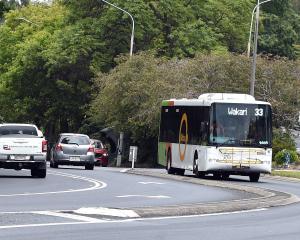A decision to not hold a Royal Commission of Inquiry into Abuse in Care hearing in Dunedin has been criticised as a ‘‘repulsive slap in the face’’ for Southern survivors.
The South, and Dunedin in particular, is considered one of the country’s epicentres for child sexual abuse in the Catholic Church.
The royal commission says it has engaged with many Dunedin survivors and is committed to investigating their claims.
But the Network of Survivors in Faith Based Institutions says it is failing to meet its obligations.
The royal commission has held public hearings in Auckland into abuse in state and faith-based care.
Survivors have also been interviewed privately.
Network spokesman Dr Murray Heasley said it was ‘‘astonishing’’ Dunedin would not host hearings.
‘‘It is a massive dereliction of duty and a repulsive slap in the face for all of the victim survivors who reported thinking they would be listened to, validated and respected.
‘‘It seems the victims of the south are not considered as worthy of healing and redress as their brothers and sisters in the north.’’
He compared Dunedin to Ballarat, Australia, where a similar church abuse scandal was uncovered.
It served as a case study for the Australian equivalent of the commission, one of 57 case studies it produced.
‘‘Our Abuse in Care Royal Commission by comparison has produced exactly zero case studies. Allow me to repeat that. Zero. None.
‘‘The case studies were not simple victim survivor statements added as appendices but major royal commission involvement at every level in situ to make the whole process accessible to the targeted community, not limited to Auckland,’’ he said.
However, royal commission chairwoman Judge Coral Shaw said it was an inquiry for all of Aotearoa, including the people of Otepoti.
‘‘The inquiry’s investigations span the country and participation is not limited to where someone lives — all people in this country are able to share their experiences with our investigation teams.
‘‘We want to reassure Dunedin-based survivors of abuse in the care of the Catholic Church (whether currently in Dunedin or living elsewhere) — and other survivors around the country — that you are important to the inquiry.’’
Public hearings were held in Auckland to manage livestream requirements, evidential documentation processes, the anonymity of witnesses as required, translation services, security, the ability to consistently provide safe areas at hearings for survivors, and the ability to have remote witnesses give evidence.
‘‘Survivors from across the country can give evidence at public hearings; the inquiry funds flights and accommodation for them and a support person, and provides financial assistance to survivors required to attend the hearing.’’
She said several survivors and their whanau/support networks from Otepoti had already come forward to the inquiry.
Hui and other meetings had been held in the city as well.
‘‘This bravery, and shedding light on the abuse, may help others to come forward.’’
The case study into abuse in the care of the Hospitaller Order St John of God, which operated Marylands School in Christchurch, was being scheduled, she said.
‘‘We continue to ask survivors from Dunedin, and across the country, to reach out to us.
‘‘You can call us, we can call you, or you can send us an email — the details are on our website.’’











